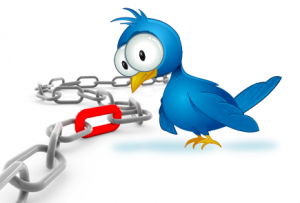With the technological advancements of our modern world, the public sphere, which was once largely confined to a geographical area, has expanded to become transnational. The internet has allowed for individuals from all over the globe to share their stories and personal experiences, in a larger sphere outside the context of their culture, class or nation. With this shift, there have been changes in the way literature is obtained, shared and read.
Blogs are a really unique phenomenon that have accompanied the growth of digital literature, in which anyone with access to a computer can share their writing. No longer is a publisher a barrier for anyone wishing for their work to enter the public sphere. This has led to an excess of literature and stories, with much more amateur or even factually incorrect literature available. Therefore, discretion is required when sorting through the plethora of blogs found on the internet, on any given topic.
Blogs and other similar digital platforms allow for information outside of the mainstream media to be widely shared. Mark Thwaite, from The Guardian, appreciates that blogging creates the possibility for community-building. This community is hopefully able to move away from the mainstream media. The blogging world has the potential to become a commune for “amateur literary essayists”, all supporting each other and sharing each others work. However, Thwaite states that, with the genesis of Twitter, that potential was never optimized. Twitter links have become the new and accessible way for people to quickly update  themselves on current events – it requires a short attention span, and minimal effort, which both conform to the preferences of our media-using world today. However, these links often reflect only the mainstream media, according to Thwaite, meaning that smaller stories, or unpopular/beginning writers may not receive any attention.
themselves on current events – it requires a short attention span, and minimal effort, which both conform to the preferences of our media-using world today. However, these links often reflect only the mainstream media, according to Thwaite, meaning that smaller stories, or unpopular/beginning writers may not receive any attention.
The hyperlink is another outcome of the digital literature movement, and hyperlinks are used frequently in blogs and similar literature forms, making them a sort of equivalent to the scholarly source cited in a scholarly article. It allows writers to pay tribute to the writings and ideas of other authors, and to point their readers towards reading those texts. There is power in the hands of the writer, to point their readers towards quality material. As well, this is another opportunity for a writer to focus their readers on literature and stories outside the bounds of mainstream media. Relating this to our course, this means that Canadian issues which maybe aren’t receiving public attention on news networks, can be broadcasted through popular blogs. The hyperlink aids political conversations by drawing readers to the original sources, such as interviews, debates or speeches, giving the reader more information on the topic. As well, a study has found that when news stories use hyperlinks, it increased the perceived news credibility. Since blogs do not require citations, it can be easy for information to be misconstrued. By including hyperlinks, there is a greater insurance that the information is accurate.
Citations
Borah, Porismita. “The Hyperlinked World: A look at how the interactions of new frames and hyperlinks influence news credibility and willingness to seek information.” Journal of Computer-Mediated Communication, 19, 576-590. 2014. https://onlinelibrary.wiley.com/doi/pdf/10.1111/jcc4.12060
Thwaite, Mark. “What became of literary blogging?” The Guardian, June 9. 2014, https://www.theguardian.com/books/booksblog/2014/jun/09/literary-blogging-twitter
